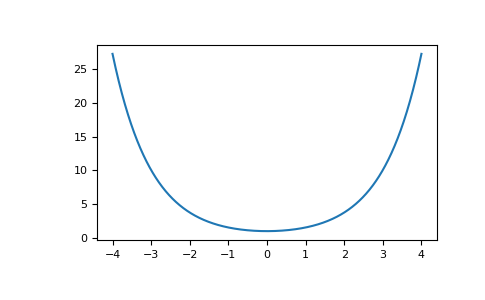numpy.cosh¶
-
numpy.cosh(x, /, out=None, *, where=True, casting='same_kind', order='K', dtype=None, subok=True[, signature, extobj]) = <ufunc 'cosh'>¶ Hyperbolic cosine, element-wise.
Equivalent to
1/2 * (np.exp(x) + np.exp(-x))andnp.cos(1j*x).Parameters: - x : array_like
Input array.
- out : ndarray, None, or tuple of ndarray and None, optional
A location into which the result is stored. If provided, it must have a shape that the inputs broadcast to. If not provided or None, a freshly-allocated array is returned. A tuple (possible only as a keyword argument) must have length equal to the number of outputs.
- where : array_like, optional
Values of True indicate to calculate the ufunc at that position, values of False indicate to leave the value in the output alone.
- **kwargs
For other keyword-only arguments, see the ufunc docs.
Returns: - out : ndarray or scalar
Output array of same shape as x. This is a scalar if x is a scalar.
Examples
>>> np.cosh(0) 1.0
The hyperbolic cosine describes the shape of a hanging cable:
>>> import matplotlib.pyplot as plt >>> x = np.linspace(-4, 4, 1000) >>> plt.plot(x, np.cosh(x)) >>> plt.show()

